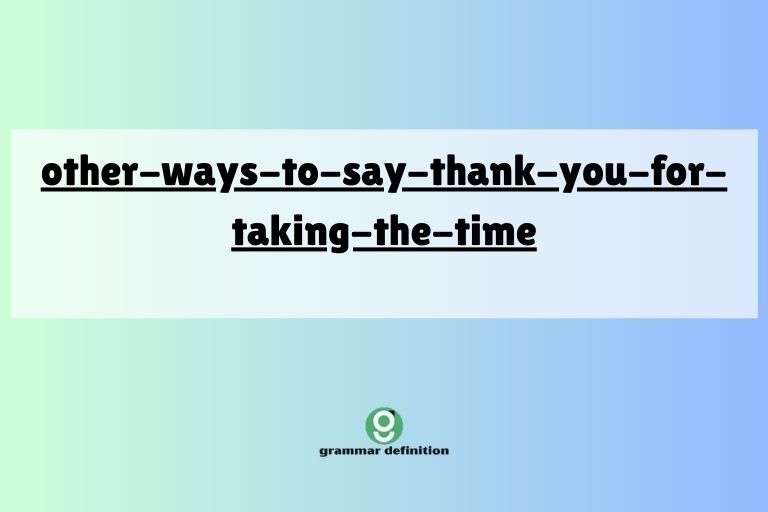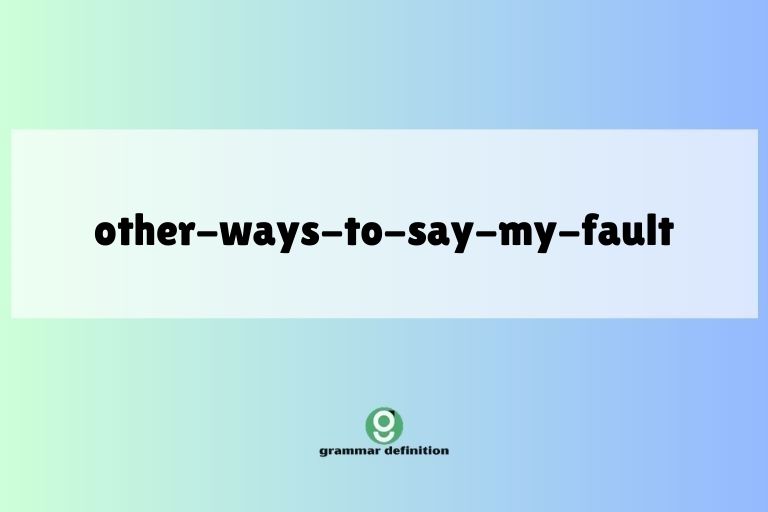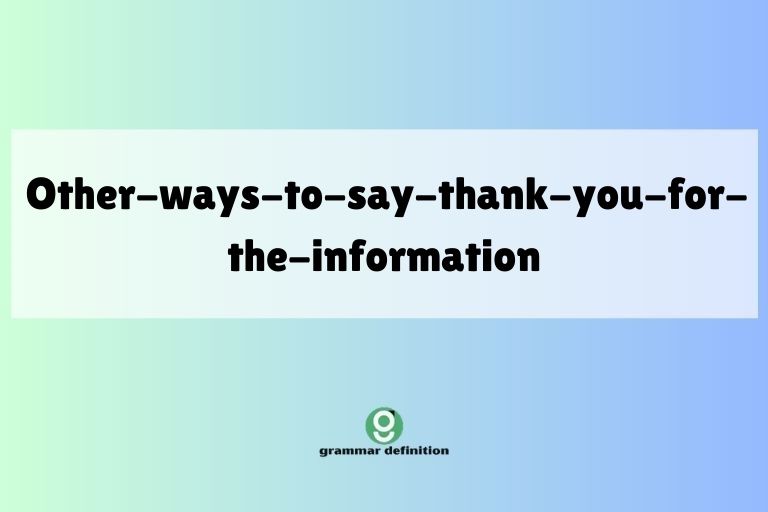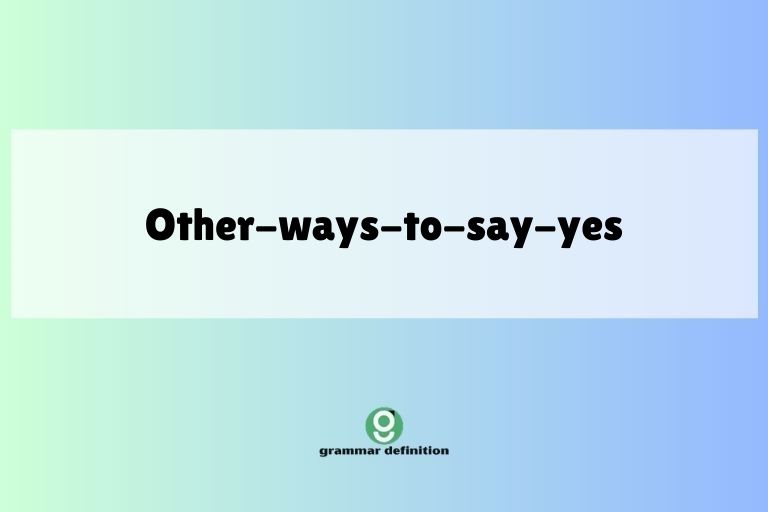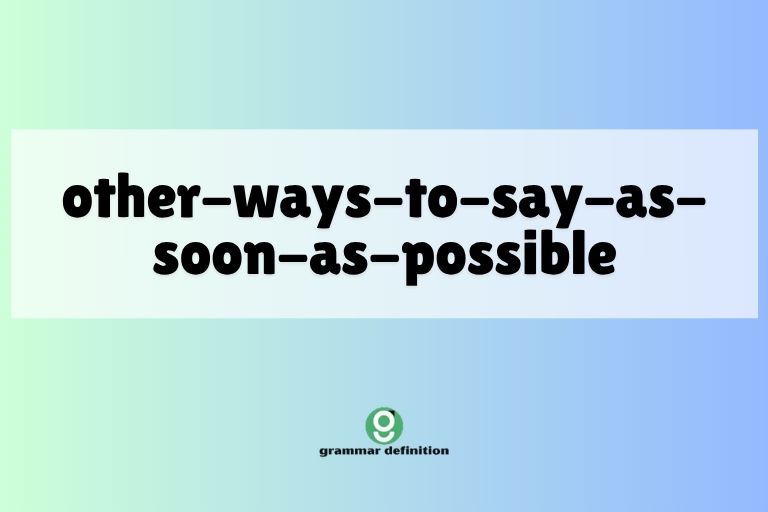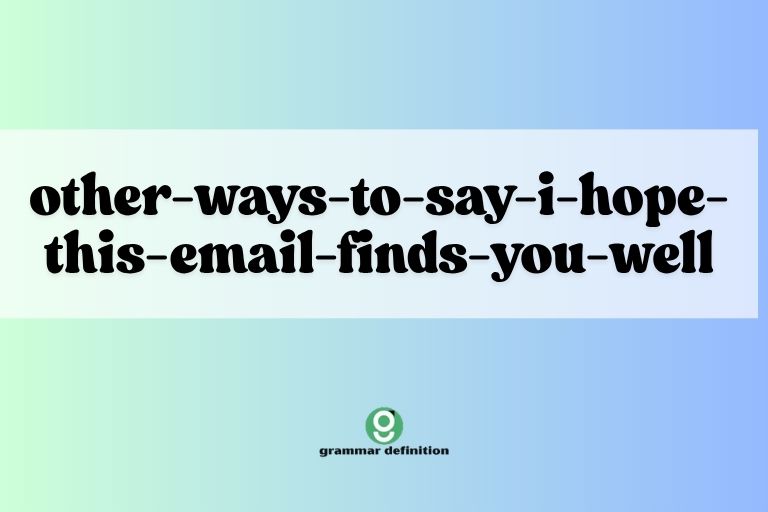Beyond “Sleep Well”: Diverse Ways to Wish Someone Rest
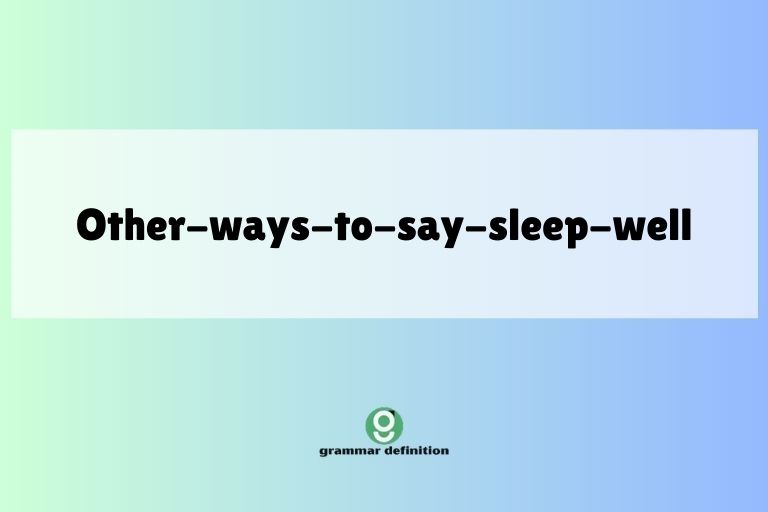
Wishing someone a good night’s sleep is a common courtesy, but relying solely on “sleep well” can become repetitive. Expanding your repertoire of sleep-related expressions not only adds variety to your language but also allows you to convey nuances in your wishes.
This article explores numerous creative and effective alternatives to “sleep well,” providing a comprehensive guide for anyone looking to enrich their English communication skills. Whether you’re a student, a teacher, or simply someone who enjoys language, this guide will enhance your ability to express your well-wishes with precision and flair.
By mastering these alternative phrases, you’ll gain a deeper understanding of English idioms, improve your conversational skills, and connect with others more meaningfully. This article provides definitions, structural breakdowns, usage rules, common mistakes, and practice exercises, ensuring a thorough understanding of each expression.
Get ready to transform your nightly greetings and farewells from ordinary to extraordinary!
Table of Contents
- Definition and Importance
- Structural Breakdown
- Categories of Alternatives
- Examples
- Usage Rules
- Common Mistakes
- Practice Exercises
- Advanced Topics
- FAQ
- Conclusion
Definition and Importance
The phrase “sleep well” is a common expression used to wish someone a restful and peaceful night’s sleep. It’s a polite and friendly way to say goodbye in the evening or before bedtime.
However, its simplicity can sometimes feel insufficient, especially when you want to express more specific or heartfelt wishes. Understanding and using alternative phrases allows for greater expressiveness and adaptability in various social contexts.
The importance of knowing different ways to say “sleep well” lies in enhancing communication skills and demonstrating linguistic versatility. It helps avoid repetition, adds depth to conversations, and allows for more tailored expressions based on the relationship with the person and the specific situation.
For example, you might use a formal expression with a colleague or an informal one with a close friend.
Furthermore, mastering these alternatives can improve comprehension of English idioms and colloquialisms, which are frequently used in everyday conversations and literature. By expanding your vocabulary related to sleep, you become a more confident and articulate English speaker.
Structural Breakdown
The basic structure of wishing someone a good night’s sleep involves a subject (often implied), a verb (expressing the wish), and an object (the desired state of sleep). However, alternative phrases can vary significantly in their structure and complexity.
Imperative sentences: Many alternatives use the imperative mood, directly commanding or requesting a positive outcome. Examples include “Have a good sleep,” where “have” is the imperative verb.
Declarative sentences: Some phrases use declarative sentences to express a hope or expectation. Examples include “I hope you sleep well” or “May you have sweet dreams,” where the subject and verb express a wish.
Idiomatic expressions: Idioms often have unique structures that don’t follow standard grammatical rules. These expressions derive their meaning from cultural context and figurative language. For example, “Don’t let the bed bugs bite” is an idiom with a playful structure.
Understanding these structural elements allows you to deconstruct and analyze different expressions, making it easier to comprehend their meaning and use them correctly. The key is to recognize the underlying intention of wishing someone a pleasant sleep, regardless of the specific grammatical structure employed.
Categories of Alternatives
Alternative ways to say “sleep well” can be categorized based on their directness, formality, and idiomatic nature. Understanding these categories helps in choosing the most appropriate expression for a given situation.
Direct Wishes for Sleep
These are straightforward expressions that directly convey the wish for a good night’s sleep. They are generally polite and suitable for most situations.
Examples include “Have a good night’s sleep,” “Enjoy a restful night,” and “Get a good rest.”
Indirect Wishes for Sleep
These expressions indirectly suggest a good night’s sleep by focusing on related aspects, such as pleasant dreams or relaxation. Examples include “Sweet dreams,” “Dream of pleasant things,” and “Rest easy.”
Idiomatic Expressions
These are figurative phrases that have a meaning different from the literal interpretation of the words. They often add humor or personality to the wish.
Examples include “Don’t let the bed bugs bite,” “Sleep tight,” and “Catch some Z’s.”
Formal Expressions
These are polite and respectful phrases suitable for professional or formal settings. Examples include “I wish you a restful night,” “May you have a peaceful sleep,” and “I hope you have a rejuvenating rest.”
Informal Expressions
These are casual and friendly phrases suitable for close friends and family. Examples include “Nighty night,” “Sleep like a log,” and “See you in the morning, bright eyes.”
Examples
The following tables provide extensive examples of alternative ways to say “sleep well,” organized by category. Each example is presented in a conversational context to illustrate its usage.
Direct Wishes Examples
These examples show how to directly wish someone a good night’s sleep in various situations. Notice the slight differences in tone and context.
| Expression | Context | Example Sentence |
|---|---|---|
| Have a good night’s sleep | General | “It’s getting late, have a good night’s sleep!” |
| Enjoy a restful night | After a tiring day | “You’ve worked so hard today, enjoy a restful night.” |
| Get a good rest | Before an important event | “You have a big day tomorrow, get a good rest!” |
| Sleep soundly | Expressing hope for deep sleep | “I hope you sleep soundly tonight.” |
| Have a peaceful night | If someone is stressed | “Try to relax and have a peaceful night.” |
| May you sleep well | Formal, expressing a sincere wish | “May you sleep well and wake up refreshed.” |
| Have a relaxing sleep | Suggesting relaxation | “After that massage, I hope you have a relaxing sleep.” |
| Get some quality sleep | Emphasizing the importance of good sleep | “Make sure to get some quality sleep before the trip.” |
| Have a rejuvenating sleep | Wishing for restorative sleep | “I hope you have a rejuvenating sleep after your illness.” |
| Sleep deeply | Wishing for uninterrupted sleep | “Sleep deeply and forget your worries.” |
| Have a comfortable night | General, focusing on comfort | “I hope you have a comfortable night in the new bed.” |
| Get some needed rest | After physical exertion | “You ran a marathon today, get some needed rest.” |
| Enjoy a tranquil night | Wishing for calmness | “I hope you enjoy a tranquil night by the sea.” |
| Rest peacefully | Expressing a wish for serenity | “Rest peacefully and let go of your stress.” |
| Have a refreshing sleep | Wishing for a revitalizing sleep | “Have a refreshing sleep so you’re ready for tomorrow.” |
| Catch some good sleep | Informal, encouraging good rest | “Catch some good sleep; you deserve it.” |
| Have a solid eight hours | Specifically wishing for a full night’s sleep | “Try to get to bed early and have a solid eight hours.” |
| Get your beauty sleep | Playful, suggesting sleep enhances appearance | “Get your beauty sleep; you have a date tomorrow!” |
| Have a full night’s rest | Emphasizing a complete night of rest | “Make sure to have a full night’s rest before the exam.” |
| Sleep well and dream sweet dreams | Combination of common wishes | “Sleep well and dream sweet dreams tonight.” |
Indirect Wishes Examples
These examples indirectly wish someone a good night’s sleep by focusing on dreams, relaxation, or the morning to come.
| Expression | Context | Example Sentence |
|---|---|---|
| Sweet dreams | General | “Goodnight, sweet dreams!” |
| Dream of pleasant things | Expressing hope for good dreams | “Close your eyes and dream of pleasant things.” |
| Rest easy | If someone is worried | “Don’t worry about it tonight, just rest easy.” |
| See you in the morning | General, looking forward to seeing them | “It’s late, see you in the morning!” |
| Have a good one | Informal, general well-wishing | “I’m heading out, have a good one!” |
| Sleep tight | General, slightly old-fashioned | “Goodnight, sleep tight!” |
| Dream of me | Playful, romantic | “Goodnight, dream of me!” |
| Wake up refreshed | Wishing for revitalization | “I hope you wake up refreshed tomorrow.” |
| Have lovely dreams | Expressing hope for beautiful dreams | “Have lovely dreams and wake up smiling.” |
| May your dreams be sweet | Formal, poetic | “May your dreams be sweet and your sleep be peaceful.” |
| Think happy thoughts | Encouraging positive thoughts before sleep | “Think happy thoughts before you go to sleep.” |
| Let your worries fade away | Suggesting relaxation | “Let your worries fade away as you drift off to sleep.” |
| Wake up feeling great | Wishing for a positive morning | “I hope you wake up feeling great tomorrow.” |
| May your night be filled with peace | Expressing a wish for tranquility | “May your night be filled with peace and serenity.” |
| Look forward to seeing you tomorrow | Expressing anticipation | “Goodnight, and I look forward to seeing you tomorrow.” |
| Until the morning | Simple farewell | “Okay, until the morning then.” |
| May you have a restful evening | Focusing on the evening before sleep | “I hope you have a restful evening before bed.” |
| Enjoy the quiet of the night | Suggesting appreciation for the night’s peace | “Enjoy the quiet of the night and relax.” |
| Have a good rest of the night | Wishing for continued rest | “You’re already in bed, so have a good rest of the night.” |
| See you bright and early | Expressing anticipation for an early meeting | “Goodnight, see you bright and early tomorrow!” |
Idiomatic Expressions Examples
These examples use idiomatic expressions to wish someone a good night’s sleep, adding a touch of humor or personality.
| Expression | Context | Example Sentence |
|---|---|---|
| Don’t let the bed bugs bite | Playful, traditional | “Goodnight, don’t let the bed bugs bite!” |
| Catch some Z’s | Informal, suggesting sleep | “I’m exhausted, I need to catch some Z’s.” |
| Sleep like a log | Wishing for deep, undisturbed sleep | “I hope you sleep like a log tonight.” |
| Hit the hay | Informal, suggesting going to bed | “I’m going to hit the hay, goodnight!” |
| Off to dreamland | Playful, suggesting a world of dreams | “I’m off to dreamland, see you tomorrow!” |
| Time to count sheep | Suggesting falling asleep | “It’s time to count sheep and drift off to sleep.” |
| Get some shut-eye | Informal, suggesting closing your eyes to sleep | “I need to get some shut-eye before the big game.” |
| Go nighty-night | Childlike, informal | “Okay, go nighty-night now!” |
| Time for beddy-bye | Childlike, informal | “It’s time for beddy-bye, little one.” |
| Drift off to slumber | Poetic, suggesting a gentle sleep | “Drift off to slumber and forget your troubles.” |
| Enter the land of Nod | Literary, referring to sleep | “I’m ready to enter the land of Nod.” |
| Time to recharge your batteries | Suggesting sleep will restore energy | “Time to recharge your batteries for tomorrow.” |
| Knock out some sleep | Informal, suggesting a quick, deep sleep | “I’m going to knock out some sleep before the meeting.” |
| Sleep until the cows come home | Wishing for a very long sleep | “I’m so tired; I could sleep until the cows come home.” |
| Get your forty winks | Suggesting a short nap | “I’m going to get my forty winks this afternoon.” |
| Go to sleep and wake up beautiful | Playful, suggesting sleep enhances appearance | “Go to sleep and wake up beautiful tomorrow!” |
| Time to hit the sack | Informal, suggesting going to bed | “I’m going to hit the sack; I’m beat.” |
| Dream sweet dreams and wake up refreshed | Combination of common wishes | “Dream sweet dreams and wake up refreshed, okay?” |
| Time to turn in | Suggesting going to bed | “It’s late, time to turn in.” |
| Off to lala land | Playful, similar to dreamland | “I’m off to lala land, goodnight everyone!” |
Formal Expressions Examples
These examples are suitable for professional or formal settings, expressing respect and politeness.
| Expression | Context | Example Sentence |
|---|---|---|
| I wish you a restful night | Formal, polite | “I wish you a restful night, Mr. Smith.” |
| May you have a peaceful sleep | Formal, expressing a sincere wish | “May you have a peaceful sleep and wake up refreshed.” |
| I hope you have a rejuvenating rest | Formal, wishing for restorative sleep | “I hope you have a rejuvenating rest after your travels.” |
| Please have a good night’s rest | Formal, polite request | “Please have a good night’s rest before the conference.” |
| I trust you will sleep well | Formal, expressing confidence | “I trust you will sleep well in our guest room.” |
| Wishing you a tranquil evening and restful sleep | Formal, detailed wish | “Wishing you a tranquil evening and restful sleep, Dr. Jones.” |
| May your evening be peaceful and your sleep be deep | Formal, poetic | “May your evening be peaceful and your sleep be deep, Madam.” |
| I hope you find comfort in a good night’s sleep | Formal, expressing empathy | “I hope you find comfort in a good night’s sleep after today’s events.” |
| I wish you a night of serene rest | Formal, elegant | “I wish you a night of serene rest, Your Majesty.” |
| Please accept my wishes for a good night’s sleep | Formal, very polite | “Please accept my wishes for a good night’s sleep, Professor.” |
| It is my hope that you will rest well | Formal, expressing a hopeful wish | “It is my hope that you will rest well during your stay with us.” |
| I extend my best wishes for a peaceful night | Formal, offering best wishes | “I extend my best wishes for a peaceful night to you and your family.” |
| May you find solace in a restful slumber | Formal, poetic and comforting | “May you find solace in a restful slumber after such a trying day.” |
| I trust you will enjoy a night of undisturbed sleep | Formal, expressing confidence in a good sleep | “I trust you will enjoy a night of undisturbed sleep in our hotel.” |
| Please allow me to wish you a pleasant night’s rest | Formal, very polite and deferential | “Please allow me to wish you a pleasant night’s rest before your departure.” |
| I hope you can unwind and have a restful night | Formal, suggesting relaxation | “I hope you can unwind and have a restful night after your presentation.” |
| May you wake up feeling refreshed and invigorated | Formal, wishing for a revitalizing sleep | “May you wake up feeling refreshed and invigorated for tomorrow’s challenges.” |
| It is my sincere wish that you have a good night’s sleep | Formal, expressing sincerity | “It is my sincere wish that you have a good night’s sleep, Mrs. Johnson.” |
| I hope you will find the evening conducive to rest | Formal, suggesting a favorable environment for sleep | “I hope you will find the evening conducive to rest after such a long journey.” |
| Please accept my sincere wishes for a restful night | Formal, emphasizing sincerity | “Please accept my sincere wishes for a restful night, Your Excellency.” |
Informal Expressions Examples
These examples are casual and friendly, suitable for close friends and family.
| Expression | Context | Example Sentence |
|---|---|---|
| Nighty night | Informal, affectionate | “Nighty night, sweetie!” |
| See you in the morning, bright eyes | Informal, playful | “See you in the morning, bright eyes!” |
| Sleep tight, don’t let the bed bugs bite | Informal, traditional | “Sleep tight, don’t let the bed bugs bite!” |
| Later | Very informal, casual | “I’m out, later!” |
| Sweet dreams, love | Informal, affectionate | “Sweet dreams, love, see you tomorrow.” |
| Night-night | Informal, childlike | “Night-night, sleep well!” |
| Okay, bye! | Very informal, quick farewell | “Okay, bye! Get some sleep.” |
| Catch you on the flip side | Informal, playful | “Alright, catch you on the flip side!” |
| Have a good one! | Informal, general well-wishing | “I’m off, have a good one!” |
| Peace out | Very informal, slang | “Peace out, gotta get some sleep.” |
| Night, dude! | Informal, friendly | “Night, dude! Get some rest.” |
| Sleep well, buddy! | Informal, friendly | “Sleep well, buddy! See ya!” |
| Have a good night’s kip! | Informal, British slang | “Have a good night’s kip, mate!” |
| See ya tomorrow! | Informal, looking forward to seeing them | “Alright, see ya tomorrow! Get some sleep.” |
| Laterz! | Informal, playful | “Laterz! Sleep tight!” |
| Time for sleepy-bye! | Informal, childlike | “Time for sleepy-bye! Good night!” |
| Alright, I’m out! | Informal, casual departure | “Alright, I’m out! Get some Z’s!” |
| Nighty-night, sleep tight! | Informal, rhyming and affectionate | “Nighty-night, sleep tight! See you in the morning!” |
| Okay, I’m off to bed! | Informal, announcing bedtime | “Okay, I’m off to bed! Night everyone!” |
| Sweet dreams, buttercup! | Informal, affectionate | “Sweet dreams, buttercup! Sleep well!” |
Usage Rules
The correct usage of these alternative phrases depends on the context, relationship with the person, and level of formality required. Here are some general guidelines:
- Formality: Choose formal expressions for professional settings or when addressing someone you don’t know well. Use informal expressions with close friends and family.
- Context: Consider the situation and the person’s mood. If someone is stressed, a comforting phrase like “Rest easy” might be appropriate. If you’re speaking to a child, a playful phrase like “Nighty night” might be better.
- Cultural Sensitivity: Be aware of cultural differences in sleep-related expressions. Some idioms might not translate well or might be considered inappropriate in certain cultures.
- Tone: Adjust your tone of voice to match the expression. A formal expression should be delivered with respect, while an informal expression can be more relaxed and friendly.
While most of these phrases are interchangeable with “sleep well,” it’s important to be mindful of the specific nuances and connotations associated with each expression. Pay attention to how native speakers use these phrases in different situations to develop a better understanding of their appropriate usage.
Common Mistakes
Even native English speakers sometimes make mistakes when using sleep-related expressions. Here are some common errors to avoid:
| Incorrect | Correct | Explanation |
|---|---|---|
| Have a well sleep | Have a good sleep | “Good” is the correct adjective to describe the quality of sleep. |
| Sleep good | Sleep well | “Well” is the correct adverb to describe how someone sleeps. |
| Dream good dreams | Dream sweet dreams | “Sweet dreams” is the idiomatic expression. |
| Resting well | Rest well | “Rest well” is the correct imperative form. |
| I wish you a good sleeping | I wish you a good night’s sleep | The correct noun phrase is “night’s sleep.” |
| May you have a well night | May you have a good night | “Good” is the appropriate adjective to describe the night. |
| Sleep tight from the bed bugs | Sleep tight, don’t let the bed bugs bite | This is the complete, idiomatic expression. |
| Have a restful sleeping | Have a restful sleep | “Sleep” is the correct noun form. |
| Get a well rest | Get a good rest | “Good” is the correct adjective. |
| See you in morning | See you in the morning | The definite article “the” is necessary. |
By being aware of these common mistakes, you can avoid errors and use these expressions with greater confidence and accuracy. Remember to pay attention to the correct grammatical forms and idiomatic usages.
Practice Exercises
Test your understanding of alternative ways to say “sleep well” with these practice exercises. Choose the most appropriate expression for each situation.
| Question | Options | Answer |
|---|---|---|
| You’re saying goodbye to your child at bedtime. Which expression is most appropriate? | a) I wish you a restful night. b) Nighty night. c) May you have a peaceful sleep. | b) Nighty night. |
| You’re speaking to a colleague before leaving the office. Which expression is most appropriate? | a) Catch some Z’s. b) I wish you a restful night. c) Sleep like a log. | b) I wish you a restful night. |
| You’re saying goodbye to a friend after a long day. Which expression is most appropriate? | a) May you have a peaceful sleep. b) Get some shut-eye. c) I hope you have a rejuvenating rest. | b) Get some shut-eye. |
| You want to wish someone good dreams. Which expression is most appropriate? | a) Have a good night’s sleep. b) Sweet dreams. c) I trust you will sleep well. | b) Sweet dreams. |
| You’re tucking your child into bed. Which expression is most appropriate? | a) Sleep tight, don’t let the bed bugs bite. b) May you have a peaceful sleep. c) I wish you a restful night. | a) Sleep tight, don’t let the bed bugs bite. |
| You’re saying goodbye to your roommate. Which expression is most appropriate? | a) I wish you a restful night. b) See you in the morning. c) May you have a peaceful sleep. | b) See you in the morning. |
| You’re speaking to a hotel guest. Which expression is most appropriate? | a) Sleep like a log. b) I trust you will sleep well. c) Catch some Z’s. | b) I trust you will sleep well. |
| You want to wish someone a very long sleep. Which expression is most appropriate? | a) Sleep well. b) Sleep until the cows come home. c) Sweet dreams. | b) Sleep until the cows come home. |
| You’re saying goodbye to a close friend. Which expression is most appropriate? | a) May you have a peaceful sleep. b) Nighty night. c) I wish you a restful night. | b) Nighty night. |
| You want to wish someone a quick nap. Which expression is most appropriate? | a) Sleep well. b) Get your forty winks. c) Sweet dreams. | b) Get your forty winks. |
These exercises will help you solidify your understanding and apply your knowledge of alternative ways to say “sleep well” in various real-life scenarios. Practice using these expressions in your daily conversations to become more fluent and confident.
Advanced Topics
For advanced learners, exploring the etymology and cultural significance of these expressions can provide a deeper understanding of their usage and evolution. For instance, the phrase “sleep tight” is believed to originate from a time when mattresses were stuffed with straw and needed to be tightly laced to provide support.
Understanding these historical contexts can enrich your appreciation of the language.
Additionally, exploring regional variations in sleep-related expressions can further enhance your linguistic skills. Different English-speaking countries and regions may have unique idioms and colloquialisms related to sleep.
Researching these variations can broaden your vocabulary and improve your ability to understand and communicate with people from diverse backgrounds.
Finally, analyzing the use of sleep-related expressions in literature and film can offer insights into their artistic and symbolic significance. Authors and filmmakers often use these expressions to convey deeper meanings and create specific moods or atmospheres.
Studying these examples can enhance your critical thinking skills and deepen your appreciation of the power of language.
FAQ
Here are some frequently asked questions about alternative ways to say “sleep well”:
- Is it always appropriate to say “sleep well”?
“Sleep well” is generally appropriate in most situations, but using alternative phrases can add variety and nuance to your communication. Consider the context and your relationship with the person to choose the most suitable expression. - What is the difference between “sleep well” and “have a good sleep”?
“Sleep well” uses “well” as an adverb to describe the act of sleeping, while “have a good sleep” uses “good” as an adjective to describe the quality of the sleep. Both are correct and commonly used. - Are there any expressions I should avoid?
Avoid using idioms that might be offensive or inappropriate in certain cultural contexts. Also, be mindful of using overly casual expressions in formal settings. - How can I improve my vocabulary of sleep-related expressions?
Read books, watch movies, and listen to conversations in English. Pay attention to how native speakers use different expressions and try to incorporate them into your own vocabulary. - What is the origin of the phrase “sleep tight, don’t let the bed bugs bite”?
“Sleep tight” likely refers to tightening the ropes on old-fashioned mattresses, while “don’t let the bed bugs bite” is a literal warning against bed bugs, which were common in the past. - Is it okay to use “goodnight” instead of “sleep well”?
Yes, “goodnight” is a perfectly acceptable and common alternative to “sleep well.” It’s a general farewell that implies wishing someone a good night. - Can I say “sweet dreams” to anyone?
“Sweet dreams” is generally appropriate for close friends, family, or romantic partners. It might be too intimate for formal settings or people you don’t know well. - What are some formal alternatives to “sleep well” for professional emails?
You could use phrases like “I wish you a restful night,” “May you have a peaceful sleep,” or “I hope you have a rejuvenating rest” in professional emails.
<
h2 id=”conclusion”>Conclusion
Expanding your repertoire of sleep-related expressions is a valuable way to enhance your English communication skills. By mastering these alternatives to “sleep well,” you can add variety, nuance, and personality to your conversations.
Whether you’re speaking to friends, family, colleagues, or strangers, you’ll be equipped to express your well-wishes with confidence and flair.
Remember to consider the context, formality, and cultural sensitivity when choosing the most appropriate expression. Practice using these phrases in your daily life to become more fluent and natural.
With a little effort, you can transform your nightly greetings and farewells from ordinary to extraordinary, leaving a lasting impression on those you interact with.

